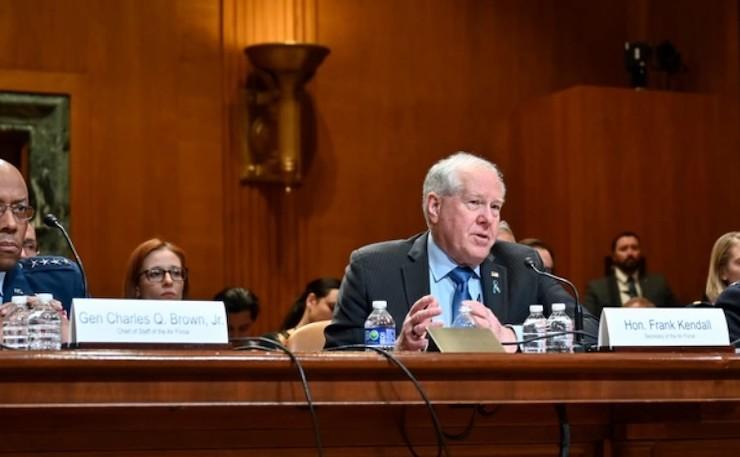
Air Force Secretary Frank Kendall testifies at a Senate Appropriations defense subcommittee hearing April 18.
Credit: U.S. Defense Department
COLORADO SPRINGS—The U.S. Air Force is losing precious time to move ahead with new programs because of Washington red tape and to change that, Air Force Secretary Frank Kendall has an unlikely message to Congress: Give up some of your authority. It is the crux of a legislative proposal that the...
Subscription Required
This content requires a subscription to one of the Aviation Week Intelligence Network (AWIN) bundles.
Schedule a demo today to find out how you can access this content and similar content related to your area of the global aviation industry.
Already an AWIN subscriber? Login
Did you know? Aviation Week has won top honors multiple times in the Jesse H. Neal National Business Journalism Awards, the business-to-business media equivalent of the Pulitzer Prizes.





